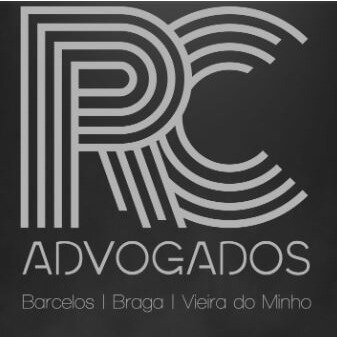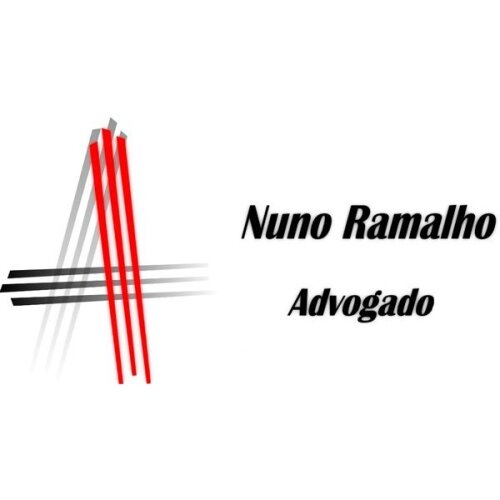Best Faith-Based Law Lawyers in Braga
Share your needs with us, get contacted by law firms.
Free. Takes 2 min.
List of the best lawyers in Braga, Portugal
About Faith-Based Law in Braga, Portugal
In Braga, Portugal, Faith-Based Law refers to the intersection of religious beliefs and legal frameworks. This area of law addresses how religious doctrines and practices can coexist within the secular legal system. It encompasses issues such as religious freedom, the rights of religious institutions, and the legal recognition of certain faith-based personal matters like marriage, divorce, and inheritance. Given Portugal's rich religious heritage, primarily rooted in Catholicism, Faith-Based Law is significant in ensuring that religious and cultural traditions are respected within the bounds of national law. In Braga, a city known for its historical churches and devout Christian population, these legal considerations are particularly pertinent.
Why You May Need a Lawyer
There are various scenarios where individuals may seek legal advice related to Faith-Based Law:
- Marriage and Divorce Proceedings: Individuals may require assistance with marriages conducted under religious rites and their legal recognition.
- Inheritance and Wills: Legal advice may be needed to ensure wills respect religious laws while adhering to national legal standards.
- Religious Freedom Issues: Cases involving the rights to practice one's religion freely, which might conflict with other legal mandates.
- Religious Institutions: Legal guidance for the establishment and operation of religious organizations within the legal framework.
- Education: Matters concerning religious teachings and practices within educational institutions.
Local Laws Overview
In Braga, as elsewhere in Portugal, the legal framework respects the separation of church and state, yet provides room for religious practices to be observed and valued. Key aspects of the local laws relevant to Faith-Based Law include:
- Religious Freedom: Protected under the Portuguese Constitution, this ensures that all citizens can freely practice their chosen religion.
- Recognition of Religious Marriages: While civil ceremonies are the standard for legal recognition, religious marriages can be recorded in the civil registry under certain conditions.
- Non-Profit Religious Organizations: Laws governing the establishment and operation of religious organizations, including tax considerations and requirements for public benefit.
- Religious Symbols in Public Spaces: Legal limitations exist to maintain secular public institutions and spaces while respecting religious expression.
Frequently Asked Questions
What is Faith-Based Law?
Faith-Based Law encompasses legal matters that intersect with religious beliefs and practices, focusing on ensuring that religious customs can integrate within the national legal system.
Is religious marriage legally recognized in Braga?
Religious marriages can be legally recognized if they meet specific criteria and are registered with the civil registry in Portugal.
Can I include religious beliefs in my will in Braga?
Yes, individuals can consider their religious beliefs in their wills, but they must also comply with national laws governing inheritance.
What are my rights regarding religious education for my children?
Parents have the right to choose religious education for their children within the bounds permitted by the national educational framework.
Can employers in Braga impose restrictions on religious practices?
Employment laws prevent discrimination based on religion, yet there may be reasonable limitations depending on the nature of the job.
How are religious disputes typically resolved?
Religious disputes involving legal issues are often resolved in civil courts, which may consider religious principles as advisory but not binding.
Are faith-based charitable organizations eligible for tax benefits?
Yes, they can qualify for tax benefits, provided they meet the criteria set for public benefit organizations.
How can religious groups buy property in Braga?
Religious groups can acquire property similarly to other legal entities, but must comply with regulations concerning non-profit entities.
What is the process for establishing a new religious organization?
This involves registering with the appropriate governmental bodies and ensuring compliance with laws governing non-profit entities.
Can religious symbols be displayed in public schools?
Portugal maintains a secular school system, so religious symbols are largely restricted in public educational institutions.
Additional Resources
For further information and assistance on Faith-Based Law in Braga, consider reaching out to these resources:
- Diocese of Braga: Provides guidance on religious matters and legal issues related to the Catholic Church.
- Portuguese Bar Association (Ordem dos Advogados): Offers directories for finding qualified legal professionals specializing in Faith-Based Law.
- Local Religious Councils: These provide support and resources specific to various faith communities.
- Citizen's Bureau (Espaço do Cidadão): Offers general legal information and resources on civic issues.
Next Steps
If you require legal assistance in the area of Faith-Based Law in Braga, Portugal, consider the following steps:
- Identify Your Needs: Clearly define the legal issue related to Faith-Based Law that you need assistance with.
- Consult a Specialist: Seek out a lawyer with experience in Faith-Based Law. The Portuguese Bar Association's directory can help locate one.
- Prepare Documentation: Gather any relevant documents and evidence related to your case or situation.
- Schedule a Consultation: Meet with your lawyer to discuss your situation and explore possible legal remedies.
- Follow Legal Advice: Adhere closely to the guidance provided by your legal representative to navigate the legal system effectively.
Lawzana helps you find the best lawyers and law firms in Braga through a curated and pre-screened list of qualified legal professionals. Our platform offers rankings and detailed profiles of attorneys and law firms, allowing you to compare based on practice areas, including Faith-Based Law, experience, and client feedback.
Each profile includes a description of the firm's areas of practice, client reviews, team members and partners, year of establishment, spoken languages, office locations, contact information, social media presence, and any published articles or resources. Most firms on our platform speak English and are experienced in both local and international legal matters.
Get a quote from top-rated law firms in Braga, Portugal — quickly, securely, and without unnecessary hassle.
Disclaimer:
The information provided on this page is for general informational purposes only and does not constitute legal advice. While we strive to ensure the accuracy and relevance of the content, legal information may change over time, and interpretations of the law can vary. You should always consult with a qualified legal professional for advice specific to your situation.
We disclaim all liability for actions taken or not taken based on the content of this page. If you believe any information is incorrect or outdated, please contact us, and we will review and update it where appropriate.










